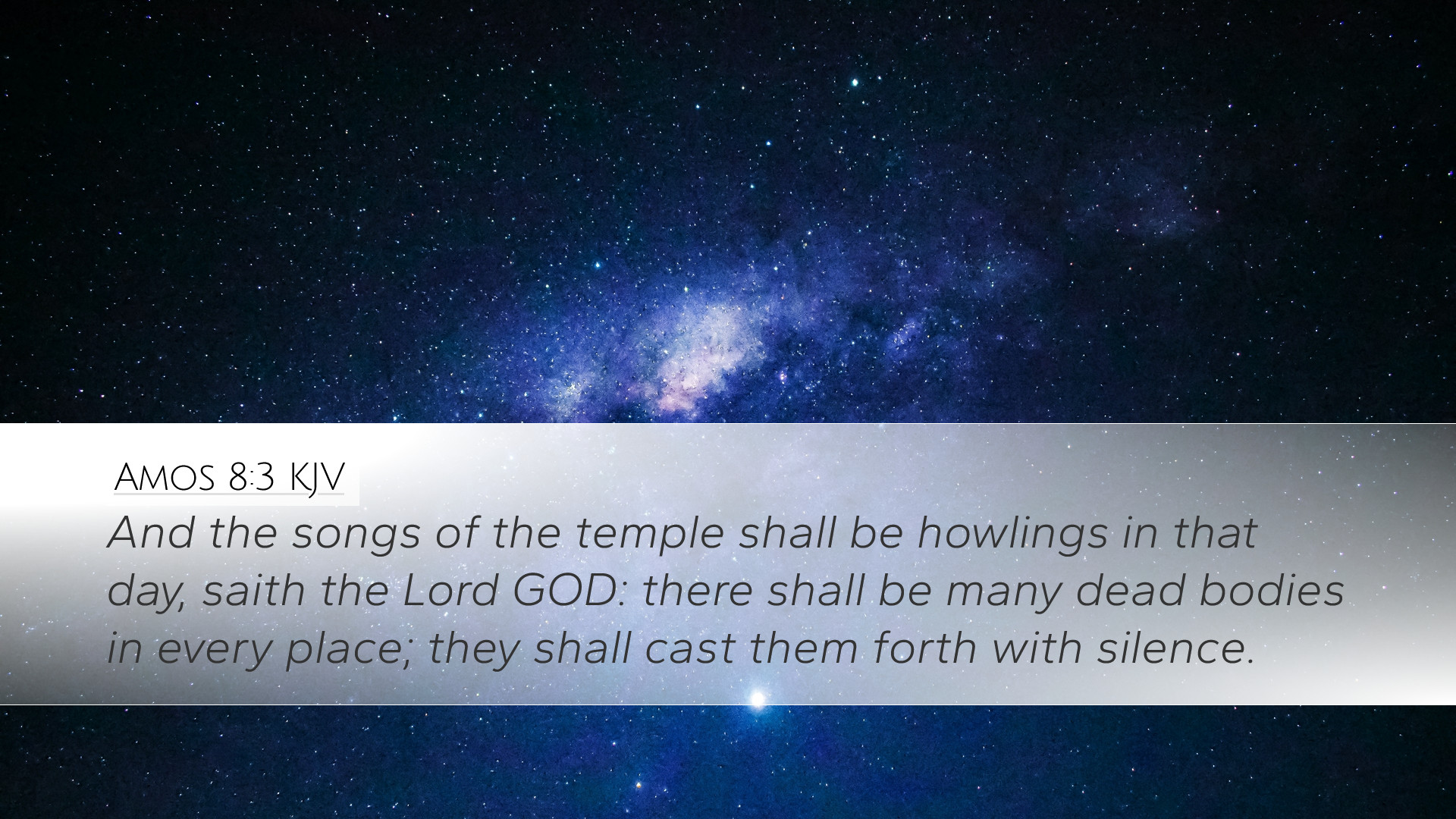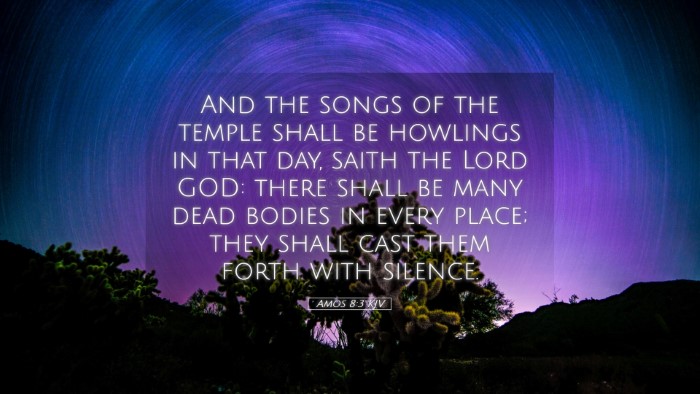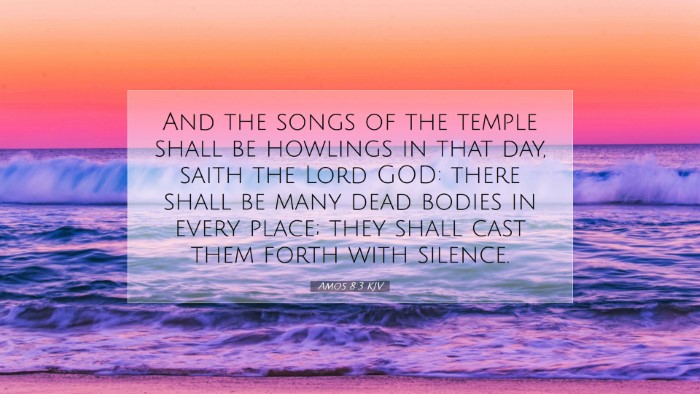Old Testament
Genesis Exodus Leviticus Numbers Deuteronomy Joshua Judges Ruth 1 Samuel 2 Samuel 1 Kings 2 Kings 1 Chronicles 2 Chronicles Ezra Nehemiah Esther Job Psalms Proverbs Ecclesiastes Song of Solomon Isaiah Jeremiah Lamentations Ezekiel Daniel Hosea Joel Amos Obadiah Jonah Micah Nahum Habakkuk Zephaniah Haggai Zechariah MalachiAmos 8:3
Amos 8:3 KJV
And the songs of the temple shall be howlings in that day, saith the Lord GOD: there shall be many dead bodies in every place; they shall cast them forth with silence.
Amos 8:3 Bible Commentary
Amos 8:3 - Commentary and Insights
Bible Verse: "And the songs of the temple shall be howlings in that day, saith the Lord God: there shall be many dead bodies in every place; they shall cast them forth with silence." (Amos 8:3)
Introduction
The prophecy of Amos is a profound reflection on the spiritual and moral decay of Israel during a time of relative prosperity. In Amos 8:3, we see a vivid depiction of impending judgment characterized by silence and mourning replacing the joyful worship in the temple. This commentary examines the theological implications of this verse, drawing from the insights of esteemed biblical scholars such as Matthew Henry, Albert Barnes, and Adam Clarke.
Contextual Background
Amos prophesied during a time when Israel was experiencing economic success but moral decline. The worship of God was marred by hypocrisy, and the social injustices of the wealthy towards the poor were rampant. Hence, this verse serves as a stark reminder of the consequences of sin, particularly the abandonment of true worship.
Matthew Henry's Insights
Worship and Judgment: Henry emphasizes the significance of worship in the life of Israel. He notes that the "songs of the temple,” symbolizing the joy and praise of collective worship, will turn into “howlings,” indicative of despair. The contrast signifies God's abandonment of His people due to their unfaithfulness.
Impending Desolation: He also points out the severity of God’s judgment, stating that “many dead bodies” will lie unburied, demonstrating the extent of destruction. This imagery serves as a warning to the complacent in their spirituality, stressing that neglect of genuine worship leads to dire consequences.
Albert Barnes' Interpretation
Judgment on False Worship: Barnes elaborates on the nature of the songs being turned to howlings. He explains that this signifies a transition from joyous expression to deep sorrow. The temple's songs, which should uplift, become a haunting reminder of God’s judgment.
- Image of Death: Barnes highlights the image of “dead bodies,” interpreting it as a reflection on the moral and spiritual death of the nation.
- Symbol of Silence: The casting forth of bodies “with silence” underscores a complete withdrawal of God’s presence, leaving the people to face the harsh realities of their actions.
Adam Clarke's Commentary
Theological Reflection: Clarke provides a theological lens through which this verse can be understood. He stresses that the “howlings” signify not only physical death but also spiritual decay. The absence of joy in worship conveys a deeper truth about the nature of God’s judgment.
Consequences of National Sin: Clarke notes the communal aspect of sin in Israel, emphasizing that the nation collectively faces the repercussions of turning away from God, culminating in destruction.
Theological Implications
This passage serves as a severe warning to contemporary readers about the implications of neglecting genuine worship and engagement with God. The transformation of joyful worship into mourning illustrates the principle that God's presence is tied to His people's faithfulness.
Reflection for Modern Readers
For pastors, students, and scholars, Amos 8:3 invites reflection on the vitality and authenticity of worship in today’s church. Questions to ponder include:
- Are our expressions of worship genuine, or have they turned into mere tradition?
- How do we respond to social injustices within our communities?
Concluding Thoughts
Amos 8:3 serves as a stark reminder of the consequences of turning from God. It underscores the urgency for believers to evaluate the authenticity of their worship and the moral compass of their actions. Engaging with this verse encourages a deeper understanding of the nature of God’s judgment and the importance of maintaining a sincere relationship with the Lord. The insights from public domain commentaries highlight the timeless relevance of Scripture, encouraging believers to heed the lessons of the past.


